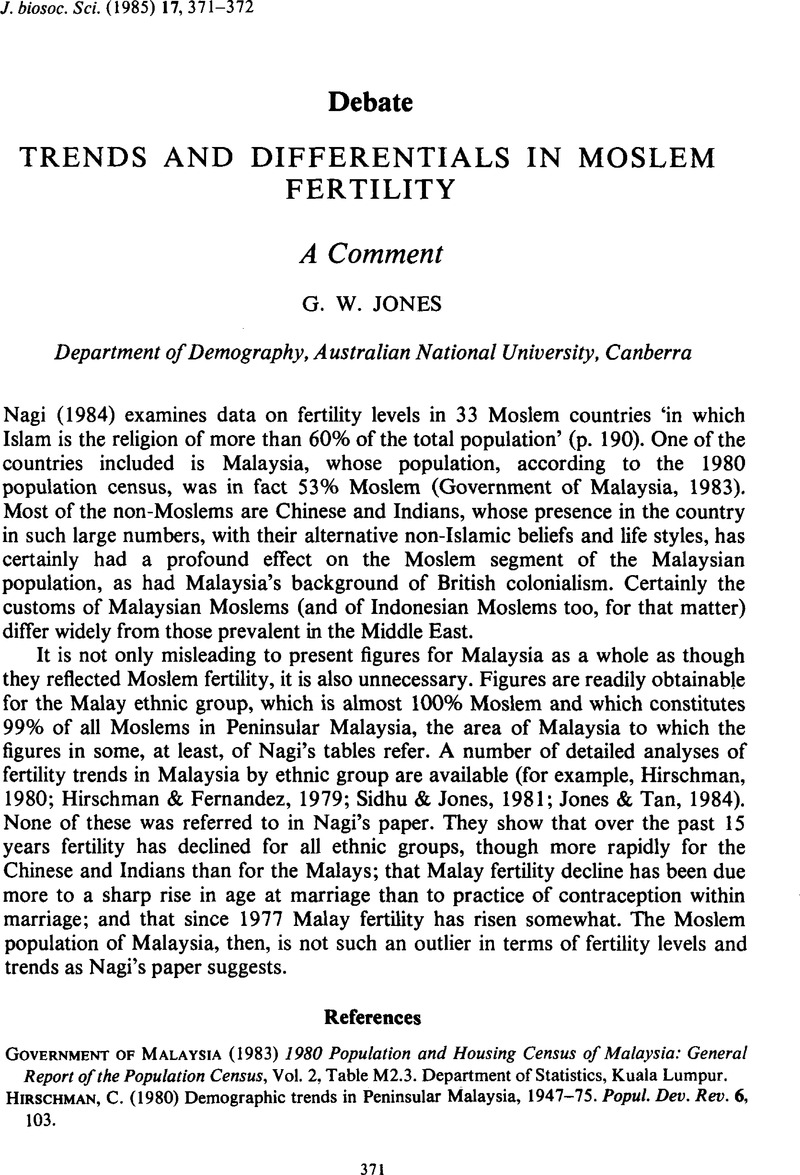No CrossRef data available.
Article contents
Trends and differentials in Moslem fertility
A Comment
Published online by Cambridge University Press: 31 July 2008
Abstract
An abstract is not available for this content so a preview has been provided. Please use the Get access link above for information on how to access this content.

- Type
- Debate
- Information
- Copyright
- Copyright © Cambridge University Press 1985
References
Government of Malaysia (1983) 1980 Population and Housing Census of Malaysia: General Report of the Population Census, Vol. 2, Table M2.3. Department of Statistics, Kuala Lumpur.Google Scholar
Hirschman, C. (1980) Demographic trends in Peninsular Malaysia, 1947–75. Popul. Dev. Rev. 6, 103.CrossRefGoogle Scholar
Hirschman, C. & Fernandez, D. (1979) The decline of fertility in Peninsular Malaysia. Genus, 35, 102.Google Scholar
Jones, G.W. & Tan, P.C. (1984) Recent and Prospective Population Trends in Malaysia. Department of Demography, Australian National University (mimeo).Google Scholar
Nagi, M.H. (1984) Trends and differentials in Moslem fertility. J. biosoc. Sci. 16, 189.CrossRefGoogle ScholarPubMed
Sidhu, M.S. & Jones, G.W. (1981) Population Dynamics in a Plural Society: Peninsular Malaysia, University of Malaya Co-operative Bookshop, Kuala Lumpur.Google Scholar


